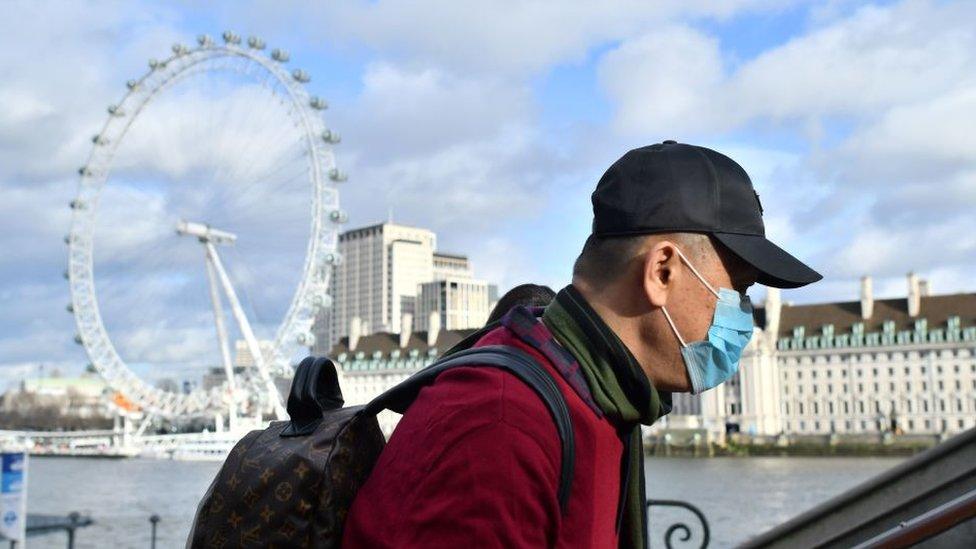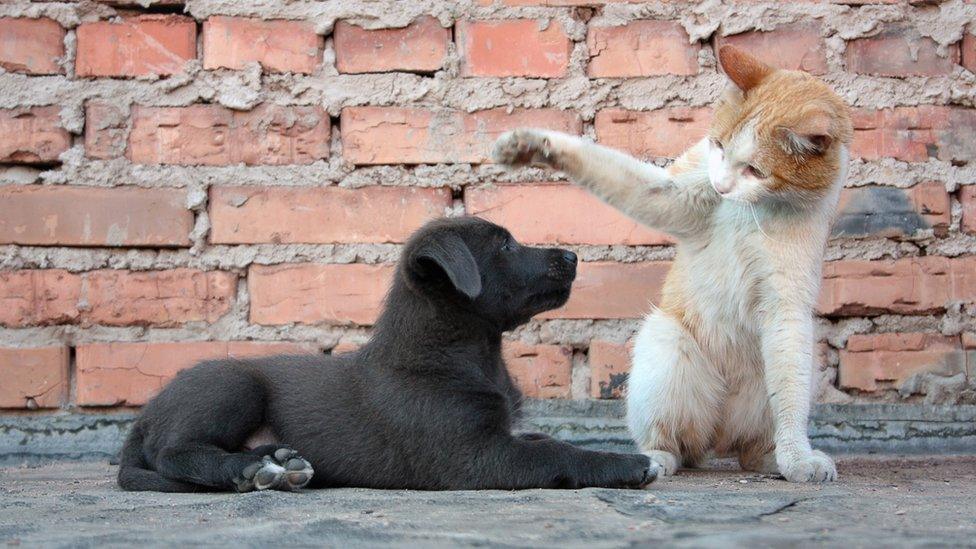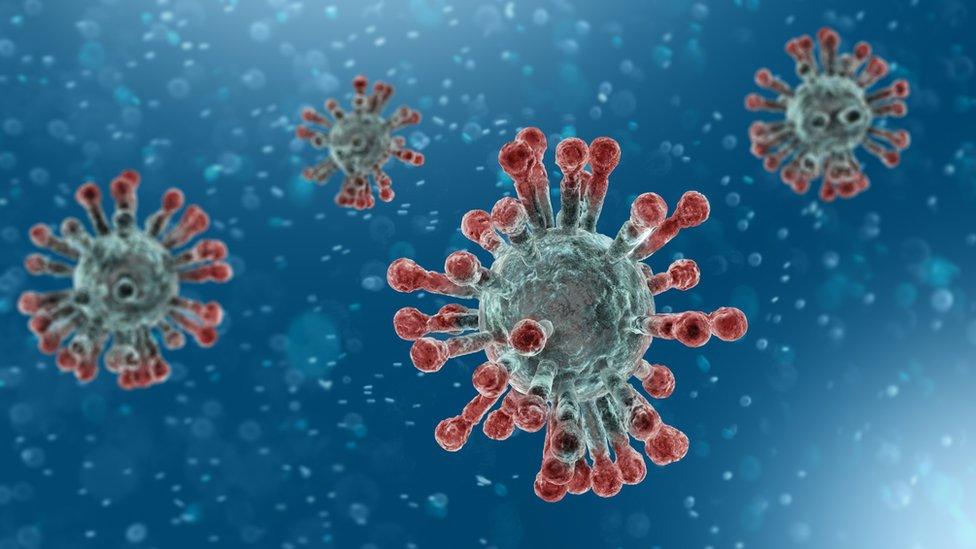Coronavirus: Five things you need to know
- Published
- comments

Myths around the risks of coronavirus in the UK are doing the rounds. We put the facts straight.
Face masks aren't that useful
You might be seeing people wearing them, but there is limited evidence that they work.
That's because they are generally too loose, don't cover the eyes and can't be worn for long periods.
Face masks need to be changed frequently (because they get sweaty), if they are to offer any real protection.
To protect yourself, the World Health Organization (WHO) says, external it's more important to:
cover your mouth and nose while sneezing, with a tissue or your elbow
put the tissue straight into a closed bin
wash your hands regularly with soap and water or sanitiser
keep your distance from people who are coughing and sneezing (at least one metre)
Don't bother:
eating garlic
gargling mouthwash
rinsing your nose with saline
using sesame oil under the nose
None of these will help protect against the new virus in any way, the WHO adds.

Dogs and cats are not spreaders
You can't catch the virus from pets
There is no evidence that your pet dog or cat can pass on the new coronavirus, according to the WHO, external.
UK experts say reports of a dog in Hong Kong repeatedly testing positive should not lead people to panic.
"We have to differentiate between real infection and just detecting the presence of the virus," says Prof Jonathan Ball, professor of molecular virology at the University of Nottingham.
"I still think it's questionable how relevant it is to the human outbreak as most of the global outbreak has been driven by human-to-human transmission."
He added: "We need to find out more, but we don't need to panic - I doubt it could spread to another dog or a human because of the low levels of the virus."
But you should still wash your hands regularly with soap and water after touching pets.
Even cuddly ones can carry bacteria such as E.coli and salmonella - and these are bugs that can pass between pets and humans.
The new coronavirus (called SARS-CoV-2, which causes the disease Covid-19) is thought to have originated in wildlife and been passed to humans via a live animal market in Wuhan, China.
The virus could have gone unnoticed in animals before jumping to humans, which is how many viruses start. eg. avian flu, Ebola, Sars.
Scientists say the likelihood of the virus making yet another jump to another species like dogs in such a short space of time is very, very small.
During the Sars outbreak in 2003, a small number of cats and dogs tested positive for the virus. These animals did not transmit the virus to other animals of the same species, or to humans.

The new virus is part of the coronavirus family, which includes the common cold, Sars and Mers
It is seldom a 'killer'
Most people will have mild symptoms (dry cough, high temperature) and will recover, the UK's top doctor says.
However, the virus is making some people seriously ill (pneumonia, breathing problems) and killing a small number (severe lung issues) - around 1%.
The elderly, the unwell and (possibly) men are more at risk of getting a serious disease.
Children and younger adults tend to have much milder symptoms but those with severe asthma or weakened immune systems could still have serious complications.
Remember that seasonal flu, which circulates every winter, kills people too - an average of 600 people die from complications of flu in the UK every year, external and hundreds of thousands of people around the world.
Prof Ball, from Nottingham University, recommends good personal and hand hygiene to protect against flu and coronavirus.
Scientists still don't know exactly how the new virus is spread but it does seem to be very infectious.
"Tiny droplets from coughs and breathing are most likely," Prof Ball says, so advising people with mild symptoms to self-isolate for seven days is lowering that risk even further.
Reducing close contact with people, particularly those who look unwell, is a good move too.
Getting a flu vaccine at the moment is still advised by UK health officials.
But there is no cure
There are no specific medicines or vaccines for the new virus, and antibiotics don't work either (they fight off bacteria, not viruses).
Treatment options do exist but most people get better on their own.
Scientists are working hard to develop a vaccine, but this will have to be tested in trials first, so it could be some time before it's ready.
Older people and those with other health conditions, such as asthma, heart disease, cancer and diabetes, are most vulnerable to the new virus.
Although anyone of any age can get it, it is hoped that only one in five of the population will be infected - but the worst case scenario could be 80%.

It's safe to eat Chinese food
There is no need to avoid your local take-away or to stop buying Chinese food or beer from any other outlet, despite fears on social media.
The virus is unlikely to survive for long enough on these kind of surfaces.
But it can survive on surfaces like door handles, cups, mobile phones and money for days, potentially, which is why regularly cleaning our hands with soap and water is so important.
You have to be in close contact with an infected person - within two metres for 15 minutes or more - to be at risk, according to advice from Public Health England.
UK government advisers say it's more likely you'll be infected from close family and friends than when attending a large gathering or event.
The virus is now circulating widely within the UK so health officials say that reducing social contact - by working at home, avoiding busy public transport and staggering your commute - is a good idea too.
- Published31 January 2020
